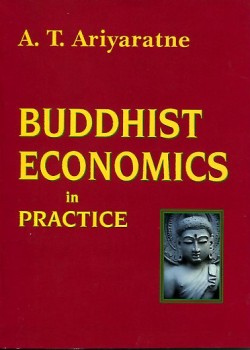
Buddhist Economics in Practice
Author : Ariyaratne, A.T.
Publisher: Sarvodaya Support Group
Place of Publish: UK
Year: 1999
Page Numbers: 78
Acc. No: 4482
Class No: 338.9 ARI-SL
Category: Books & Reports
Subjects: Development
Type of Resource: Monograph
Languages: English
ISBN: 09536535-0-1
The Author who also is the founder of the Sarvodaya Movement has been characterised by some as a Buddhist modernist for his reinterpretation or reapplication of Buddhist principles to fit his social action work. His modernism can be seen in his call for Buddhist monks and laity alike to be active in village life. The village is central to Ariyaratne's solution to Sri Lanka's troubles. Ariyaratne sees his idealised version of ancient Sri Lankan villages as the center of the social order. The Author focuses on economic solutions through application of Buddhist principles which he calls "Buddhist Economics." In one of his lectures he states, “The economic life of a human being cannot be separated from his total life and living. Buddha Dhamma looks at life as a whole. In fact the entire world is treated as a whole in Buddha's teachings. Without this holistic understanding of life, it is difficult for humans to follow the path of happiness, He showed. Economics is only a fragment of life and living. Therefore, moral and social implications of economic activity cannot be considered apart from economics. The Author often critiques consumerism, capitalism, and the rising divide between the rich and the poor. With a modernist global view, he often criticises the West and international organisations such as the World Bank. He states that the West has created “large-scale methods and systems, created by man and capable of dominating man, in place of simple social, economic, and political institutions which man could dominate. The author believes that through grassroots efforts directed by Buddhism these problems can be overcome.



